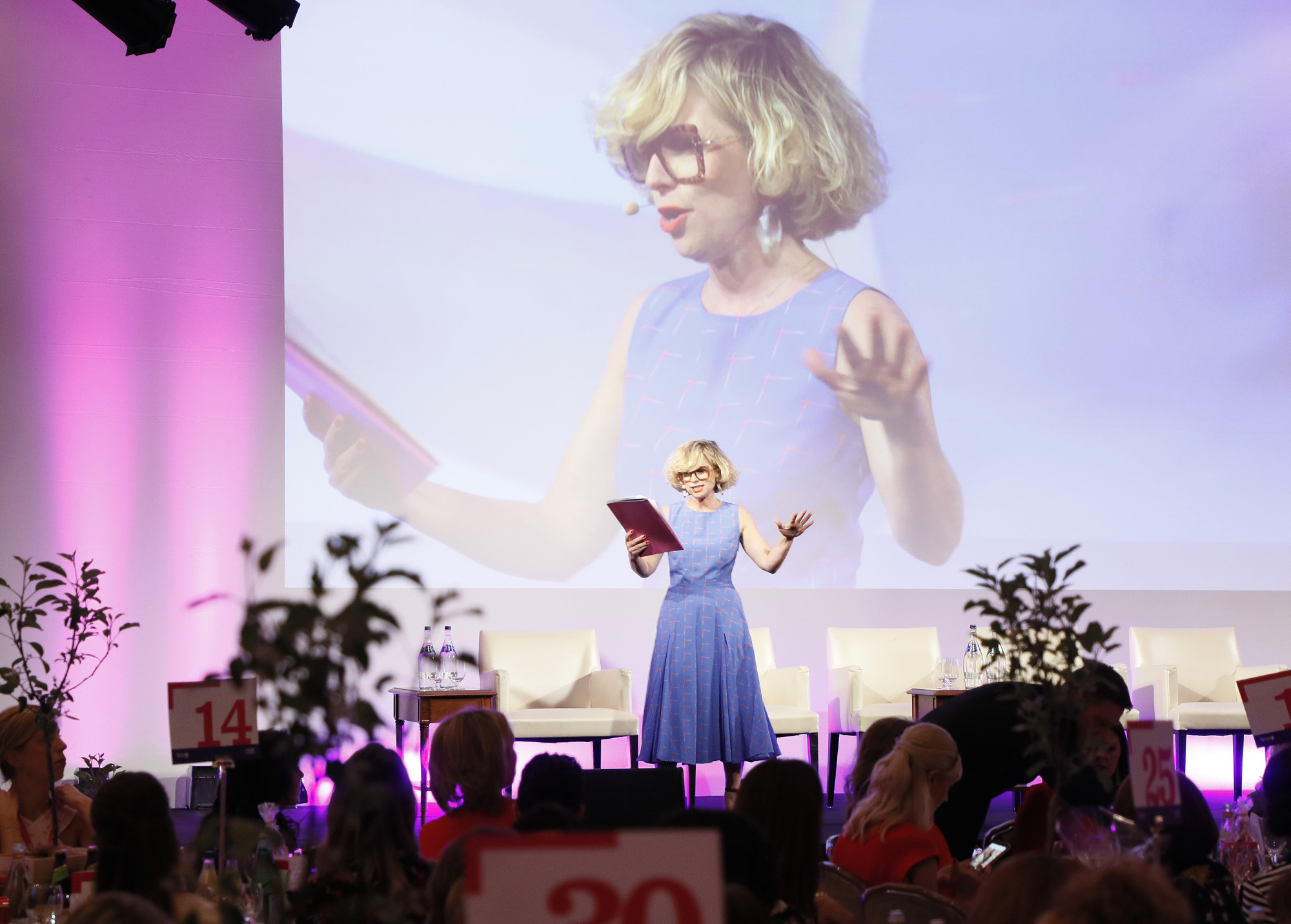When I founded the non-profit Work Equal (formerly Dress for Success) 12 years ago, dear friend, I saw it as a vital service to prepare clients pro bono for success at job interviews.
We worked with volunteer stylists and HR professionals to package the outside and the inside, giving confidence and enough self-belief to change the course of a life. In many ways, we gave our clients permission to succeed.
Success is a hairy concept., dear friend.
It’s not solely about money or status, although that is what we first think of when we hear the word. For so many of us, success is wrapped up in improving our sense of security and unlocking increased opportunities for those coming next. We want stability, consistency, and to feel psychologically secure.
What if your ‘normal’ is being in a home where no one works, no one on your street works, and very few people in your community work?
You don’t know what it looks like to have a potential alternative reality to the one you have. And arguably, supports your ‘different’ choice may be thin on the ground; maybe they do not understand, or it changes expectations for everybody.
Three years ago, Dress for Success rebranded as Work Equal.
This was to reflect better the work that we do and to move beyond only serving women. We’ve seen this first-hand with the clients we serve at Work Equal. A bright young woman with aspirations to become a lawyer entered a mentorship programme to unlock that world, only to drop out due to the complex pressures which come hand in hand with doing something different to the family norm. She chose to return to what she knew- to work alongside her family and pursue a well-trodden path to becoming a beautician.
A lawyer is not better than a beautician, but they are different, and differences, as we know, can be problematic, dear friend.
If all you know is how to make money as a beautician, that’s all you know.
If all you know is addiction, defensiveness, cruelty, displacement and poverty, then that’s all you know.
Dr Katriona O’Sullivan’s phenomenal book, Poor, tells of her lived experience fighting against her normal life and a path laid down for her by her family and her community. It took several external interventions and a considerable amount of personal fortitude to make that change, to stand for difference. Having come to know Katriona, I can assure you her gumption is far from ‘normal’.
We need three permissions to succeed:
- We need the issuer to grant us permission,
- the receiver to grant us permission,
- we need to give ourselves permission.
The issuer is our family, our community, where we’ve come from. It’s a conversation I’ve had with Sharyn Ward, singer and activist for the Irish Traveller community. When your own are holding you back, the journey to the unknown may be harder. Maybe we need to work harder to bring whole communities on the journey then they can more easily support those who have different dreams.
Work Equal delivers national outreach services to marginalised and underrepresented communities. Its goal is to normalise the pursuit of sustainable careers and economic independence and change the paradigm for the next generation.
This is important because, from our position of privilege, if we leave people behind, they become disillusioned and disenfranchised, and the social contract becomes frayed.
We’ve seen it in our work: a seed of optimism and possibility is sown, households change, the mindset becomes more open, and increased self-esteem has a positive virality.
And what about permission from the receiver, the employer, and the educator? I’ve had thousands of interactions with people in companies that are driving and striving for cultures of belonging. Leaders of industry wringing their hands, talking about the war for talent. Where are all the people? Third-level Institutions are shouting about access programmes. People are out there; we used to concentrate our services on women, but now we serve everyone. Not because we’ve fixed the issue of gender representation but because the significant divisions now lie along the lines of status, class, race, ethnicity and ability.
If we don’t open up intentional pipelines into new communities that we haven’t targeted before, we just continue to drink from the same dry well. And that means going deep, making your way out of your comfort zone, and talking to people as people, not as others. It also means critical analysis of the barriers to inclusion, either human or technological. Those invisible landmines are everywhere and are particularly hard to spot when they don’t affect you.
Finally, each individual needs to get to a point where they give themselves permission to succeed.
One client told us they had been sent from service to service, like ‘pass the parcel’. They told how, in every room they entered, they felt that the sole purpose of the person they were engaging with was to find them another room to move on to. That person came to Work Equal, was met with respect and kindness and was given the clothing and skills to present themselves at their job interview. ‘I arrived feeling worthless’, they said, ‘I left feeling like a CEO’.
That client got the job, dear friend.
It doesn’t take much to help someone feel valued and valuable. It doesn’t take much to unlock that value in our businesses and communities. It requires intentionality, openness and trust. The alternative is a cohort of people in this country who don’t think they belong and don’t believe anyone cares.
Can we stand over a society that does that? We know where that disenfranchisement leads: the UK and US have demonstrated that.
The bigger question is,can we afford not to do better?
